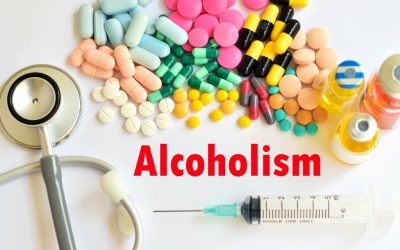Without the strange, chemical band-aid of it, I was stark naked in my fears. But staying in the discomfort—really owning and embracing it—became yet another amphetamine addiction treatment superpower in my mounting collection of life-changing, sober glow-ups. I submitted my work in earnest for the first time in my life, and with this came award nominations, national recognition, and a literary agent in New York City.
I considered the world and the people in it with unending curiosity, which naturally segued into my need to write. I believe writers are people who professionally pay attention, and yet after years of studying the craft, I hadn’t published a word. Girl’s Nights’ Out, which had once been just that, now ended in blacked-out nights on the beach with my girlfriends—bless them—where I began to express just how alone I felt in my marriage. Two years later, we were married and welcomed our daughter. We grew in all directions, and for a brief moment, led a fortunate life in which work met play met giddy, hazy love.
Tips for Divorcing an Addict
Most treatment methods for substance use disorder involve the family. That means you will likely play a role in your partner’s treatment. Be engaged in their treatment, and work on healing the relationship. In a relationship affected by substance use, it’s likely that trust has been broken many times.
Put Your Feelings in Writing

I tried to solve my overdrinking problem on too many occasions to count. I came up with rules to limit my intake and keep me in line. I divorce rates after sobriety didn’t drink on weekdays, I stuck to beer and avoided hard liquor, I only allowed myself a certain preset quantity and I drank a glass of water between each alcoholic beverage. But rules are made to be broken, and while I followed the various plans enough of the time to give my wife hope, I got drunk and belligerent often enough to crush her soul.
The Hive Law Has Been Featured In
- According to the Jerusalem Post, the Jewish divorce rate is 9%.
- Addiction is a degenerative disease that affects the person’s brain chemistry, causing an inability to stop using the drug or alcohol, often at the expense of relationships, work, and financial responsibility.
- ” Because when it comes down to it, it’s about the small wins.
- Sometimes I feel like I’ve failed, like I wasn’t patient enough.
- Living with someone who has substance use disorder can be difficult, and also create changes in your relationship.
Additionally, if an addict’s spouse does move forward with the divorce process, children will have to deal with the sudden, permanent change in their family structure. Divorce cases often deal with “money issues” as the primary reason for marriage termination. Many spouses who abuse substances will go to great lengths to buy their substance of choice, sometimes spending money set aside for a necessary expense. It is also not uncommon for an addicted spouse to go into debt or sell possessions to get more money.
Usually there are multiple reasons for the demise of a marriage. These are the most common explanations cited by divorcing couples. Many factors could explain this, including the fact that couples with stronger religious beliefs may be both less likely to live together before marriage and less likely to divorce. And as distracted as you are with your efforts to live in sobriety, you might occasionally feel panicked. Every step you take toward healthier living—whether it’s a morning meditation or finalizing a beneficial custody arrangement—reinforces that you’re capable of growth. This slow but steady momentum gradually shapes a life that feels not just okay, but truly rewarding.
Leaning on positive social connections can be transformative. Some previous research has shown that men are more likely to remarry than women, but estimates of remarriage typically look at both widowed and divorced adults. Because widows are less likely than divorced adults to remarry and women are much more likely than men to be widowed, previously married women are less likely to remarry than men.

As he worked to grow his business, our marriage took a backseat. That, coupled with new motherhood and a raging case of postpartum depression, left me feeling lonelier than I https://ecosoberhouse.com/ believed possible in adulthood. I couldn’t grasp how one could presumably have everything, yet feel so deeply sad. Until now, I’ve kept my sobriety journey private for a few reasons.
This eventually led him back to school for a degree in psychology. Lyle was VP of a 6-county homeless coalition and a founding member of the Mental Health Action Team in Miami-Dade County. He has served as a Consultant & Licensure Specialist to numerous facilities and has served as a Drug Court Panel member. Going through one of the biggest life and financial decisions while you are in the midst of a personal life crisis can make both situations harder.

Welcome to Mainspring Recovery, The #1 Rehab Center in Virginia
The gender difference isn’t as large when looking only at divorced women and men. There are resources available to help you navigate divorce and addiction. Seeking professional help, both individually and as a family, can provide a safe space to process emotions, navigate legal complexities, and develop coping strategies. Addressing these issues often requires a multidisciplinary approach involving legal professionals, mental health experts, and addiction specialists to ensure fair outcomes for all parties involved.
Find a Support System
Utilizing the strategies and coping mechanisms learning during substance abuse treatment can support ongoing abstinence and recovery. No one enters a marriage expecting it to come to an end someday. Unfortunately, divorce is a reality for millions of Americans, and people struggling with addiction — as well as those currently in addiction recovery — are far from exempt. Here’s a closer look at the impact of divorce on addiction treatment and recovery, along with tips for maintaining your sobriety during this difficult time. The shortcoming to successfully handle funds post-recovery amplifies present tensions.
The Center conducts public opinion polling, demographic research, computational social science research and other data-driven research. Pew Research Center is a subsidiary of The Pew Charitable Trusts, its primary funder. Divorced men are less likely than married men to be employed; the opposite is true for women. In addition, those with a bachelor’s degree or more education (25%) are less likely than those with a high school degree or less (37%) and those with some college education (41%) to have divorced. Americans who were born in the U.S. are more likely than those born outside the U.S. to have ever divorced (36% vs. 22%). The share of Americans who have divorced varies by race and ethnicity, nativity, and education.

